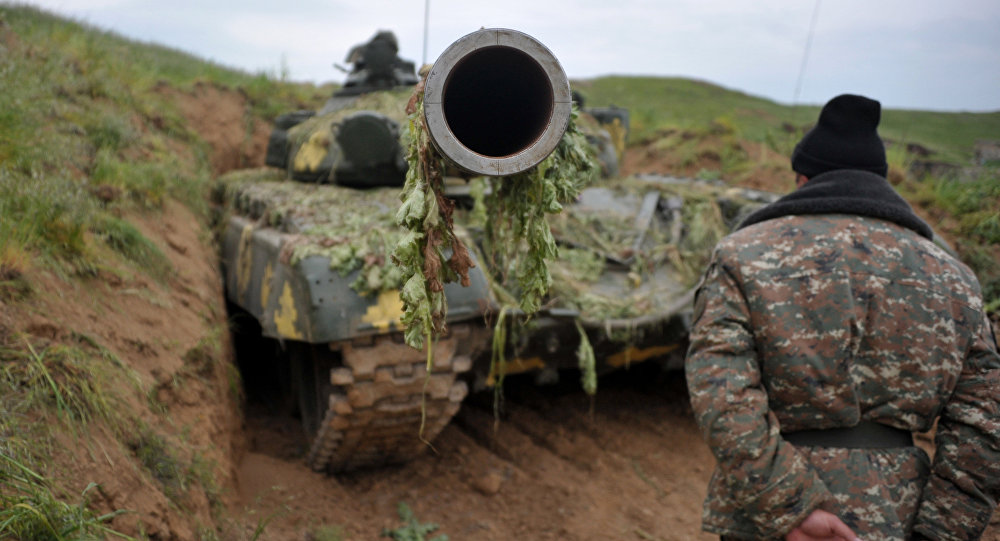
The bloody clashes between Armenian and Azerbaijani armed forces in April 2016 along the line of contact around Nagorno Karabakh and the surrounding regions reminded the international community of the one of the unresolved conflicts in the post-soviet geography. Besides international community, and probably more important than that, the 4-Day War also evoked the memories of the tragic days of the war between Armenia and Azerbaijan, the active phase of which came to an end in 1994 by the Bishkek Ceasefire Agreement, which, however, was not followed by a peace agreement. Today, the war between Armenia and Azerbaijan de jure continues. Unfortunately, it is hard to speak about any progress towards a final peace agreement due to unconstructive attitudes of Armenia and Azerbaijan, and the inefficiency of the OSCE Minsk Group. Recently, the sole effort of the OSCE Minsk Group is contained merely to the prevention of armed clashes.
Within such a context, a promising initiative was lunched by several Armenian and Azerbaijani civil society activists, something that has not been achieved either by OSCE Minsk Group or by any other third party. In November 2016, six Armenian and Azerbaijani activists met in Baku and issued an appeal to the presidents of Armenia and Azerbaijan. The full text of is replicated below.
In this appeal, signatories highlighted devastating consequences of the Karabakh conflict such as IDPs and refugees, absence of economic progress, and the negative perceptions of the Armenian and Azerbaijani youth vis-à-vis each other as a consequence of the lack of communication and interaction between two peoples, and the hardships that the state of war brings about.
The signatories underlined that principally the conflict could be solved not through third party interventions, but by the initiatives of Armenians and Azerbaijanis, and called to initiation of genuine negotiations, a break through the current status quo, ending of the occupation, return of the IDPs to their native lands, and respecting and honoring the resolutions of the United Nations, Council of Europe, UN Security Council and norms and principles of the international law. Arguably most significantly, the signatories called to disregard the “racist views on incompatibility of Armenians and Azerbaijanis and inability of both nations for peaceful coexistence.” In fact, this perspective seems to be what is most needed to build peace and achieve prosperity in the South Caucasus.
To the President of the Republic of Armenia Mr. Serzh Sargsyan
To the People of Armenia
To the President of the Republic of Azerbaijan Mr. Ilham Aliyev
To the People of Azerbaijan
November 8, 2016, Baku
A P P E A L
We representatives of Armenian and Azerbaijani people today have came together with aim of discussing the main obstacles and ways of resolution of Armenia-Azerbaijan Nagorno Karabakh conflict which remains unresolved for more than 25 years . The conflict led to death of tens thousands of our citizens and caused for hundreds of thousands of people to become IDPs and refugees, therefore, considering it as our obligation we are making this appeal to you.
After the collapse of the Soviet Union Armenia and Azerbaijan exercising their right to self-determination have become independent states. However, the civil interstatereletion based on the principles of the international law and the Helsinki Final Act, which is commonly accepted in Europe, failed to prevail in the region of South Caucasus. The consequences of the bloody conflict between the two states still continue to prevent the establishment of the sustainable peace and stability in the region. It is impossible to express all horrors of war by only providing sheer statistics of moral and material damages inflicted upon to both countries regardless of ethnicity, age and sex by the flame of the conflict during the last decades. Nowadays, trenches and mined areas inherent to the scenario of World War II lie along the line of contact of armed forces and the internationally recognized borders of both countries. Young Armenian and Azerbaijani soldiers in the trenches see each other though the optic scopes of sniper rifles. Perception of new generations growing in both countries about one another are only shaped by the realities of war and hardships that it brings about. The April events once again demonstrated that the resumption of war could lead to the catastrophic consequences. Unlike the 1990s, further development of both countries’ military arsenal and ascension of the military threats to the level of ballistic missiles heralds about the horrifying extent of the risks of war. Otherwise, all the resources spent for military purposes could have been used for the welfare and prosperity of two nations.
Armenian and Azerbaijani people are tired of this conflict and do not want to face new losses over and over again. It is so naive to believe that apart from Armenian and Azerbaijani people someone else will be able to solve the conflict. Bearing in mind these, we call:
-to demonstrate wisdom and courage, not allow falling victim of the past; and look into the future and make lessons learned from the severe consequences of the conflict;
— to accelerate the substantive and result-oriented talks and put an end to the imitation of negotiations. The immediate resolution of the conflict will give impetus to the economic development of not only Nagorno Karabakh region, but also Armenia and the region as a whole, and will contribute to the peace and cooperation between two countries. In this case, there will be no winners or losers, and it will only create win-win situation both for the people of Armenia and people Azerbaijan.
-to change the current status-quo. It is considered unacceptable and unsustainable by the heads of state of the OSCE Minsk group co-chairs;
-to eliminate the fact of occupation, which forms the fundamental basis of the current status-quo and ensure the withdrawal of the troops;
-to ensure a safe and dignified return of the IDPs to their native lands;
-to understand that today, Azerbaijan is a tolerant, multicultural and developing country, where 30 thousand citizens of Armenian ethnicity live in an free and independent environment and although the conflict they have never become the subject of discrimination. There are not any obstacles for Azerbaijani and Armenian communities to live again in safety and peace in Nagorno Karabakh region of Azerbaijan. Therefore, ungrounded racist views on incompatibility of Armenians and Azerbaijanis and inability of both nations for peaceful coexistence should firmly be rejected;
— To consider seriously as potential compromise deal the recent proposal on establishment Nagorno Karabakh autonomous republic within the boundaries Azerbaijan where all rights, as well as security of Armenian and Azerbaijani communities will be guaranteed;
-To establish civil relations between Armenia and Azerbaijan based on the resolutions and decisions of the United Nations, OSCE, Council of Europe and other international organizations, especially the resolutions of the UN Security Council and deriving from with the norms and principles of international law, provisions of the Helsinki Final Act, particularly the principles of respecting to each other’s sovereignty, territorial integrity and inviolability of the internationally recognized borders;
-Further use of this platform for the purposes of continuing the dialogue of civil societies aimed at contributing to the resolution of conflict.
On behalf of conference participants from Armenian side
- Vage Aventian-Human Rights Defender;
- Vaan Martiosian- chairman of Public Organization “National Liberation Movement”
- Susan Djaginian – journalist, Vice-President of human rights non-governmental organization “Meridian”
On behalf of conference participants from Azerbaijani side
- Rovshan Rzayev – Member of Azerbaijani Community of Nagorno-Karabakh
- Kamil Salimov- Professor of Baku State University
- Shalala Hasanova- Chairwoman of Public Union “ Support for the Development of Communication with Public”
Photo: Sputnik International
© 2009-2025 Center for Eurasian Studies (AVİM) All Rights Reserved
No comments yet.
-
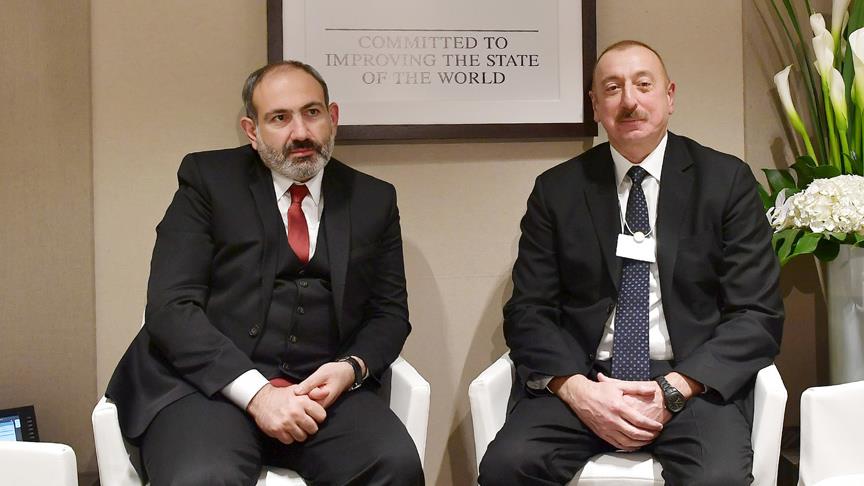 AZERBAIJAN-ARMENIA PEACE NEEDS STRATEGIC OUTLOOK AND PRAGMATIC STEPS
AZERBAIJAN-ARMENIA PEACE NEEDS STRATEGIC OUTLOOK AND PRAGMATIC STEPS
Turgut Kerem TUNCEL 20.12.2023 -
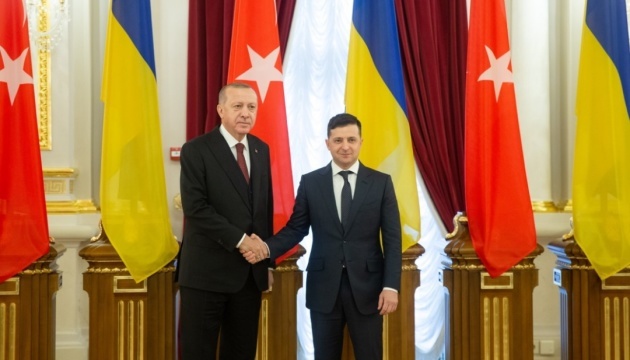 THE ‘ARMENIAN QUESTION’ IN UKRAINE - I: A POTENTIAL PROBLEM IN A PROMISING RELATIONSHIP BETWEEN TURKEY AND UKRAINE
THE ‘ARMENIAN QUESTION’ IN UKRAINE - I: A POTENTIAL PROBLEM IN A PROMISING RELATIONSHIP BETWEEN TURKEY AND UKRAINE
Turgut Kerem TUNCEL 07.05.2021 -
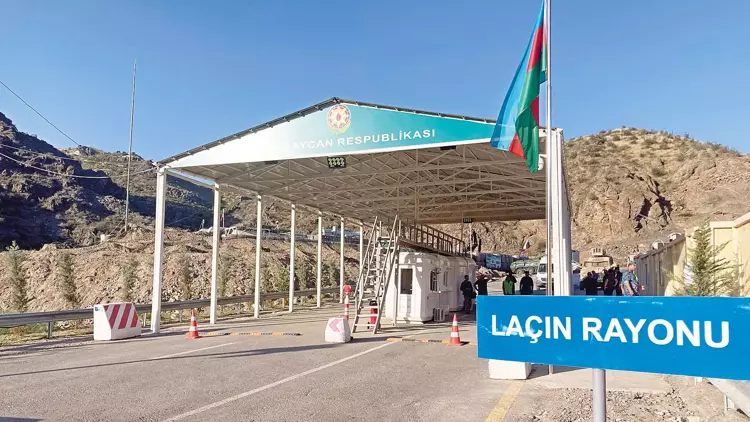 ARMENIA-AZERBAIJAN TENSION AND ITS CONTINGENCIES
ARMENIA-AZERBAIJAN TENSION AND ITS CONTINGENCIES
Turgut Kerem TUNCEL 19.09.2023 -
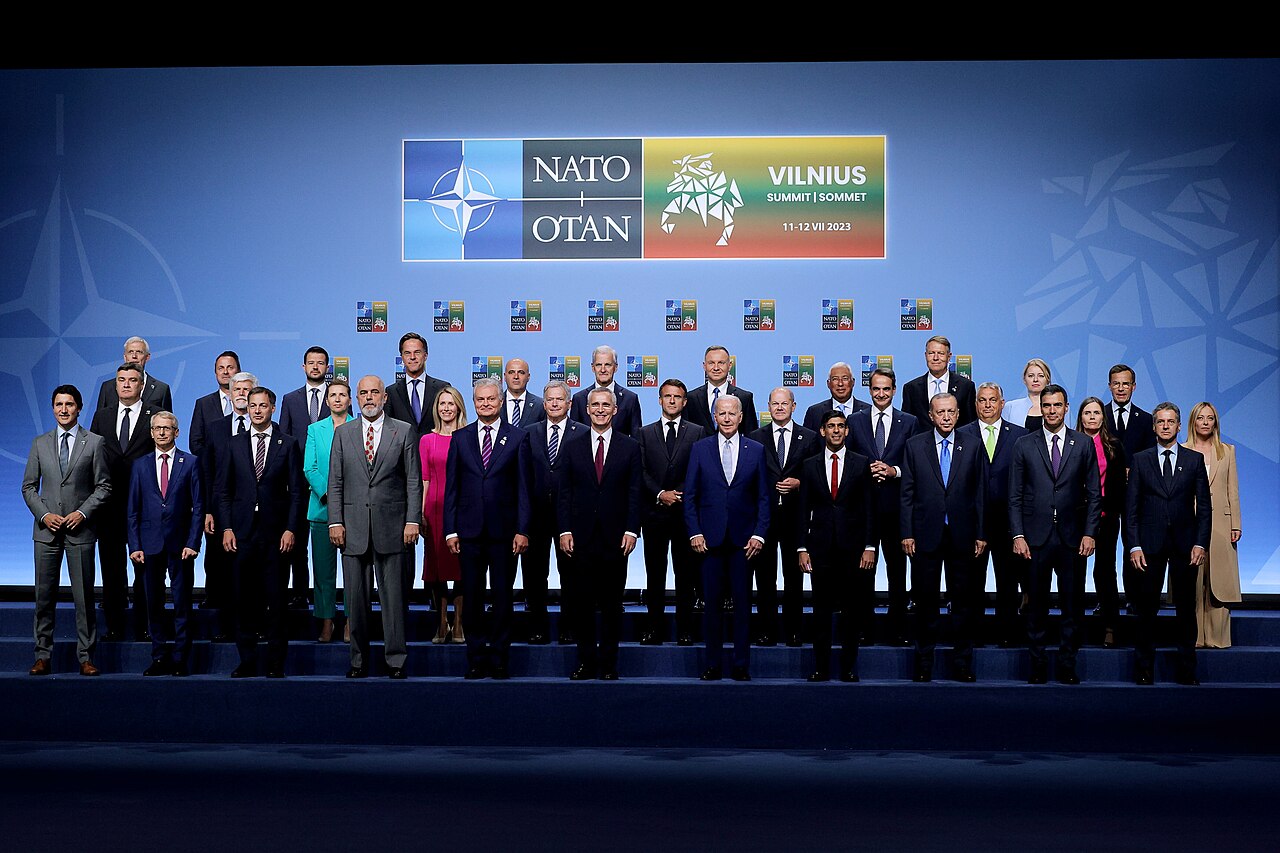 THE 2023 NATO SUMMIT AND THE BLACK SEA SECURITY
THE 2023 NATO SUMMIT AND THE BLACK SEA SECURITY
Turgut Kerem TUNCEL 20.07.2023 -
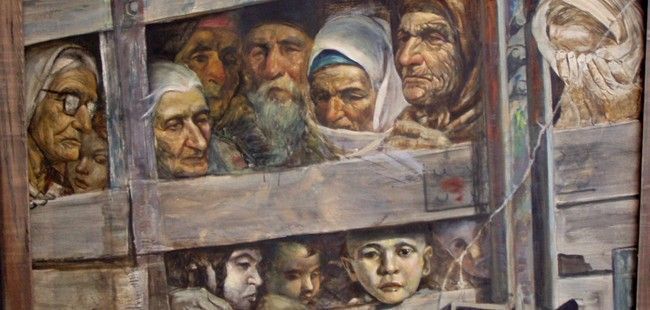 THE FORCED EXILES OF THE CRIMEAN TATARS AND THE CIRCASSIANS
THE FORCED EXILES OF THE CRIMEAN TATARS AND THE CIRCASSIANS
Turgut Kerem TUNCEL 24.05.2017
-
AVIM HELD MEETINGS WITH THINK TANKS AND ACADEMIC CIRCLES IN TEHRAN
AVİM 17.09.2015 -
 THE ARMENIAN PRESS IS MAKING FALSE NEWS
THE ARMENIAN PRESS IS MAKING FALSE NEWS
Berfin Mahide ERTEKİN 20.11.2019 -
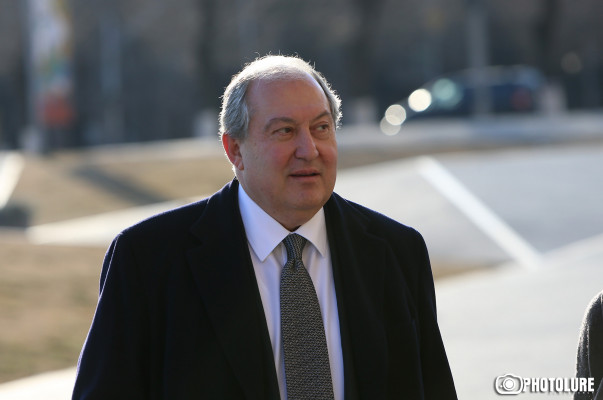 ARMEN SARKISSIAN’S PRESIDENCY AND THE QUESTIONS ON ETHICS AND POLITICAL CULTURE IN ARMENIA
ARMEN SARKISSIAN’S PRESIDENCY AND THE QUESTIONS ON ETHICS AND POLITICAL CULTURE IN ARMENIA
Turgut Kerem TUNCEL 12.04.2018 -
 THE CLAIM OF WESTERN ARMENIA AND ITS REFLECTIONS IN THE PUBLIC OPINION
THE CLAIM OF WESTERN ARMENIA AND ITS REFLECTIONS IN THE PUBLIC OPINION
Tuğçe TECİMER - Selenay Erva YALÇIN 05.05.2025 -
 THE AFTERMATH OF THE DENIAL OF TERRORIST SASSOUNIAN’S PAROLE
THE AFTERMATH OF THE DENIAL OF TERRORIST SASSOUNIAN’S PAROLE
Ali Murat TAŞKENT 16.05.2017
-
25.01.2016
THE ARMENIAN QUESTION - BASIC KNOWLEDGE AND DOCUMENTATION -
12.06.2024
THE TRUTH WILL OUT -
27.03.2023
RADİKAL ERMENİ UNSURLARCA GERÇEKLEŞTİRİLEN MEZALİMLER VE VANDALİZM -
17.03.2023
PATRIOTISM PERVERTED -
23.02.2023
MEN ARE LIKE THAT -
03.02.2023
BAKÜ-TİFLİS-CEYHAN BORU HATTININ YAŞANAN TARİHİ -
16.12.2022
INTERNATIONAL SCHOLARS ON THE EVENTS OF 1915 -
07.12.2022
FAKE PHOTOS AND THE ARMENIAN PROPAGANDA -
07.12.2022
ERMENİ PROPAGANDASI VE SAHTE RESİMLER -
01.01.2022
A Letter From Japan - Strategically Mum: The Silence of the Armenians -
01.01.2022
Japonya'dan Bir Mektup - Stratejik Suskunluk: Ermenilerin Sessizliği -
03.06.2020
Anastas Mikoyan: Confessions of an Armenian Bolshevik -
08.04.2020
Sovyet Sonrası Ukrayna’da Devlet, Toplum ve Siyaset - Değişen Dinamikler, Dönüşen Kimlikler -
12.06.2018
Ermeni Sorunuyla İlgili İngiliz Belgeleri (1912-1923) - British Documents on Armenian Question (1912-1923) -
02.12.2016
Turkish-Russian Academics: A Historical Study on the Caucasus -
01.07.2016
Gürcistan'daki Müslüman Topluluklar: Azınlık Hakları, Kimlik, Siyaset -
10.03.2016
Armenian Diaspora: Diaspora, State and the Imagination of the Republic of Armenia -
24.01.2016
ERMENİ SORUNU - TEMEL BİLGİ VE BELGELER (2. BASKI)
-
AVİM Conference Hall 24.01.2023
CONFERENCE TITLED “HUNGARY’S PERSPECTIVES ON THE TURKIC WORLD"









